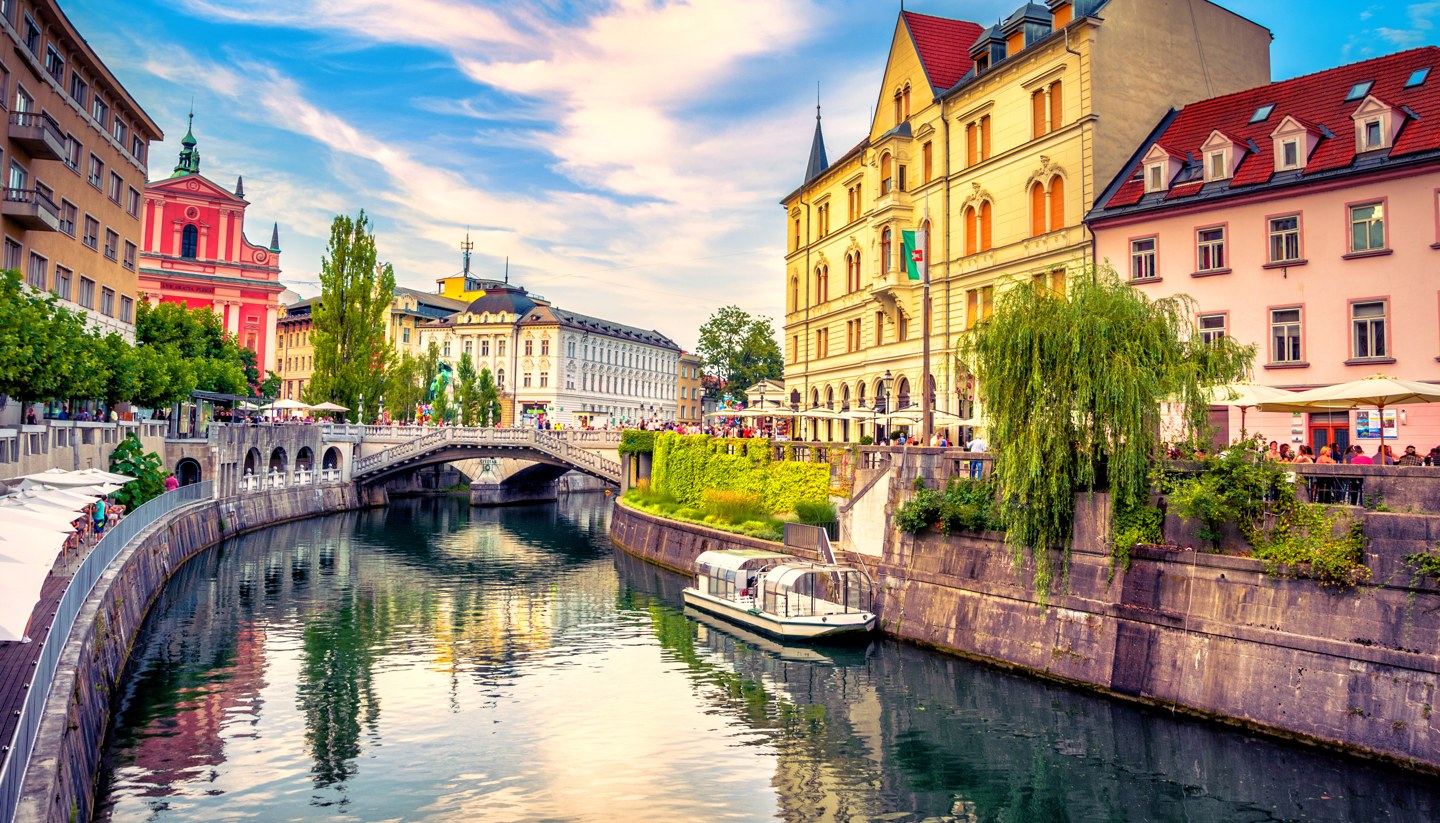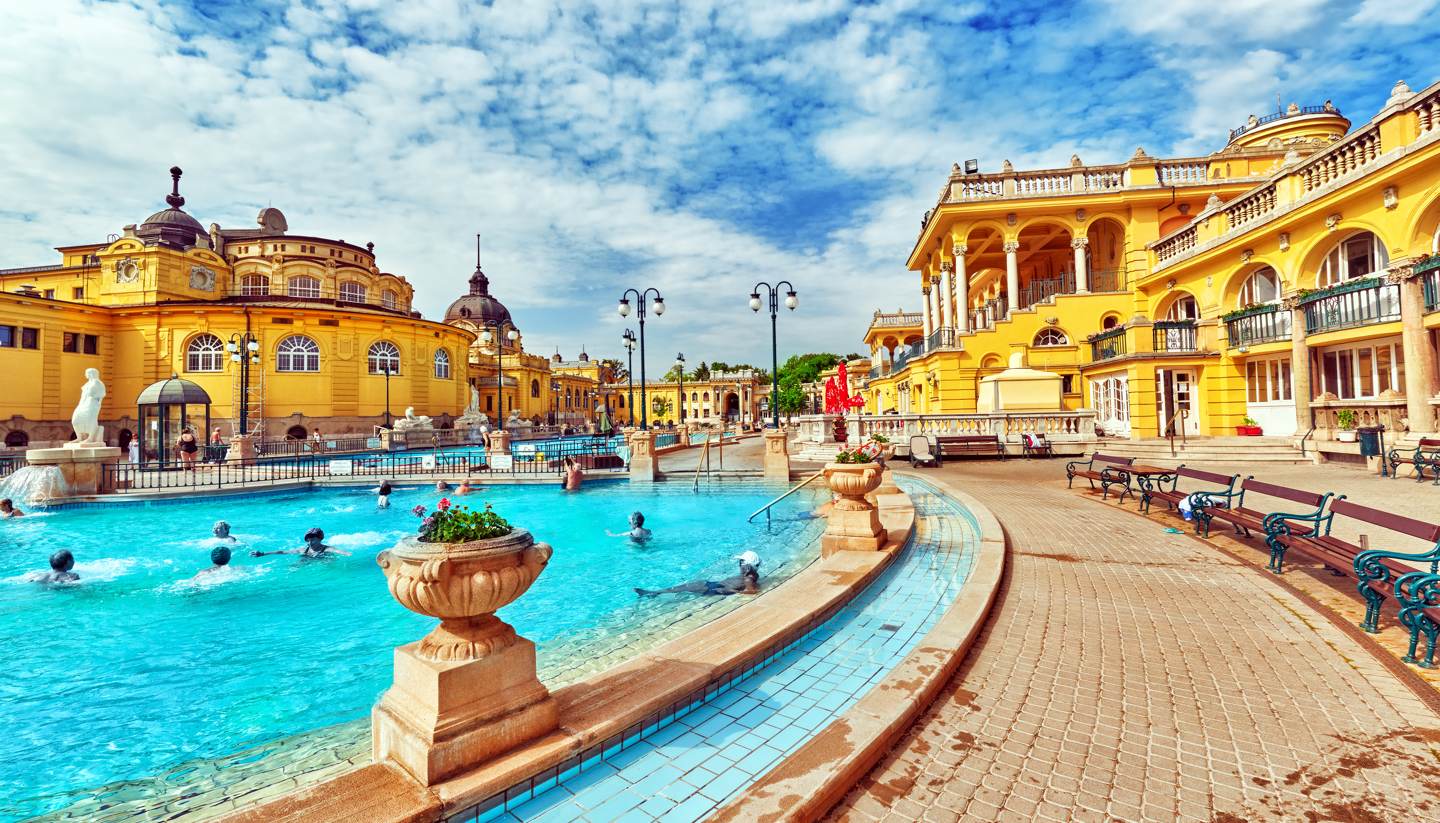Slovenia History, Language and Culture
History of Slovenia
Slovenia's history is deeply intertwined with its geographic location at the crossroads of Central Europe. For centuries, the territory of modern-day Slovenia was part of the Holy Roman Empire and later the Austro-Hungarian Empire. During this time, it absorbed influences from Germanic, Latin, and Slavic cultures, shaping its unique identity. The Austro-Hungarian period brought economic development, infrastructure expansion, and a rising sense of Slovene national consciousness, as intellectuals and cultural leaders began advocating for greater recognition of the Slovene language and culture.
After the collapse of the Austro-Hungarian Empire at the end of World War I, Slovenia became part of the newly formed Kingdom of Serbs, Croats, and Slovenes, later renamed Yugoslavia. During this period, Slovenia experienced both challenges and progress, with industrialisation and urbanisation shaping the region. In World War II, Slovenia was occupied and divided by Axis powers, but a strong resistance movement emerged. After the war, Slovenia became one of six republics in the Socialist Federal Republic of Yugoslavia under the leadership of Josip Broz Tito. As part of Yugoslavia, Slovenia enjoyed relative economic prosperity and cultural autonomy, benefiting from its proximity to Western Europe.
By the late 1980s, as Yugoslavia began to unravel under political and economic pressures, Slovenia's path to independence gained momentum. The push for greater democracy and self-determination culminated in a plebiscite in December 1990, where an overwhelming majority voted for independence. In June 1991, Slovenia formally declared independence, which led to a brief 10-day conflict with Yugoslav forces. The international community quickly recognised Slovenia's sovereignty, and the nation embarked on a journey of state-building and economic transformation.
Slovenia's integration into European institutions was swift and successful. It joined the European Union and NATO in 2004, fully embracing Western alliances and solidifying its place as a stable and progressive nation at the heart of Europe. Today, Slovenia stands as a thriving country, balancing its rich history with a forward-looking vision for the future.
Did you know?
• Slovenia covers less than 0.004% of the Earth's surface and is home to more than 1% of all known species, making it one of the most biodiverse countries in Europe.
• The town of Maribor is home to the world's oldest grapevine, known as the "Old Vine" (Stara trta), and is estimated to be over 400 years old.
• Slovenia is home to an estimated 700 to 900 brown bears, one of Europe's largest bear populations.
Slovenia Culture
Religion in Slovenia
Roman Catholic (57.8%), Atheist (10.1%), Muslims (2.4%), Orthodox Christian (2.3%).
Social Conventions in Slovenia
Slovenians are proud of their pristine environment, and visitors are encouraged to respect nature by avoiding littering and following local recycling practices. Quietness in public spaces, especially on public transport, is appreciated, as is respecting personal space in social interactions. Punctuality is generally valued, particularly in professional or formal settings.
If invited to a Slovenian home, it is customary to bring a small gift, such as flowers, chocolates, or a bottle of wine, as a gesture of gratitude. Flowers are typically unwrapped before being presented, and avoid giving red carnations, as they are associated with funerals. Slovenians are known for their warm hospitality, so expect to be offered food and drink, and be sure to accept, even if only a small amount, as it shows appreciation for the host's efforts.
In rural areas, be mindful of local customs and traditions, as many Slovenians retain a strong connection to their cultural heritage. Small gestures of politeness, such as greeting shopkeepers with a friendly "Dober dan" (Good day), go a long way in fostering positive interactions.
Language in Slovenia
The national language of Slovenia is Slovene, also known as Slovenian (slovenščina). Many people also speak English, German or Italian as a second language.
Phrases
Živjo / Zdravo = Hello
Kako si? / Kako ste? = How are you? ("Kako si?" is informal, while "Kako ste?" is formal.)
Me veseli = Nice to meet you
Prosim = Please (also used for "You're welcome" depending on the context)
Hvala = Thank you
Da = Yes
Ne = No
Nasvidenje = Goodbye




